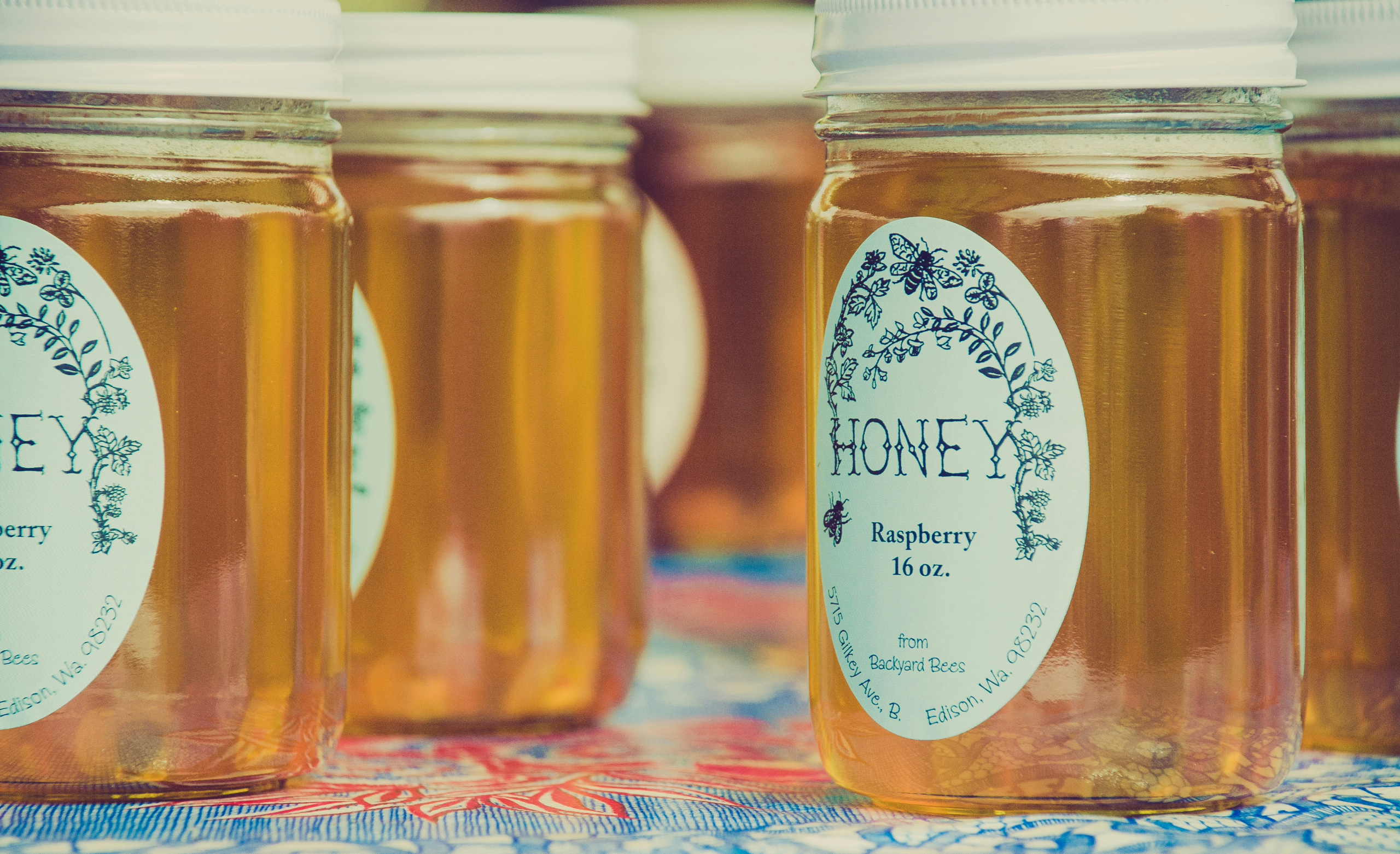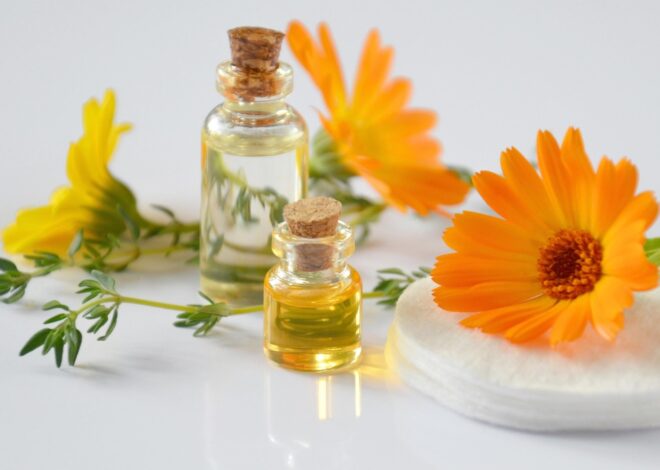
Medicinal Uses For Honey
Welcome to the ultimate guide on medicinal uses for honey. Honey is more than just a sweet treat drizzled on your morning toast. Often dubbed the “liquid gold,” this natural substance has been revered for centuries not only for its delightful flavor but also for its remarkable medicinal properties.
From soothing sore throats to promoting wound healing, honey serves as an age-old remedy with modern relevance. The fascination with honey’s healing abilities spans cultures and generations, making it a staple in both traditional and contemporary medicine.
With various types of honey available, each offering unique benefits, it’s no wonder that people are turning to this versatile ingredient as part of their health regimen. Curious about how you can harness the power of honey?
Let’s dive into its historical significance, explore different varieties, and uncover the top medicinal uses for honey that can elevate your well-being naturally.
The History of Honey as Medicine
Honey has been revered for its medicinal properties for thousands of years. Ancient Egyptians utilized honey not only as a sweetener but also as an essential component in their healing practices. They made salves and poultices infused with honey to treat wounds and infections.
In traditional Chinese medicine, honey was considered a vital remedy, believed to balance the body’s energy. The Greeks also praised honey’s health benefits, attributing its use in various treatments outlined by Hippocrates.
Throughout history, many cultures have recognized the power of this golden elixir. From Ayurvedic practices in India to folk remedies worldwide, honey consistently appears as a go-to ingredient for promoting wellness.
As scientific research progresses, modern studies continue to validate ancient wisdom about honey’s antimicrobial and anti-inflammatory properties. This rich tapestry of historical usage highlights how deeply entrenched honey is in our quest for natural healing solutions.
Different Types of Honey and Their Healing Properties
Honey comes in many varieties, each with its own unique flavor and medicinal benefits. Manuka honey stands out due to its antibacterial properties, making it a popular choice for wound healing and sore throats.
Raw honey retains more nutrients compared to processed versions. It’s rich in antioxidants and can aid digestion while soothing the stomach lining.
Buckwheat honey is another gem. Darker than most types, it’s packed with antioxidants that may help combat oxidative stress in the body.
Clover honey is widely recognized for its mild sweetness and versatility. It can be used as a natural energy booster and supports immune health.
Lavender honey offers calming effects, perfect for relieving anxiety or promoting better sleep. Each type holds distinct qualities that contribute to overall well-being when incorporated into daily routines.
How to Identify Pure and High-Quality Medicinal Honey
Identifying pure and high-quality medicinal honey is essential for reaping its full benefits. Start by checking the label for authenticity. Look for terms like “raw,” “unfiltered,” or “organic.” These indicate minimal processing. Next, observe the color and consistency.
Quality honey varies from light amber to dark brown but should have a thick texture without being overly runny. A simple taste test can reveal much about its quality. Authentic honey has a rich, complex flavor profile that lingers on your palate, unlike commercial varieties which may taste overly sweet with no depth.
Another useful method involves dissolving it in water. Pure honey will leave little residue at the bottom of the glass compared to adulterated options that cloud the water quickly. Consider sourcing from local beekeepers or reputable brands known for their commitment to natural practices. This connection often ensures you’re receiving genuine medicinal properties in every drop.
Top Medicinal Uses for Honey:
Honey is more than just a natural sweetener; it boasts several remarkable medicinal uses. Consuming honey regularly can boost your immune system. Its antioxidants help protect against various illnesses while enhancing overall wellness.
– Sore Throat Relief
Sore throats can be incredibly uncomfortable, but honey offers a soothing solution. Its natural antibacterial properties help combat the bacteria that contribute to throat irritation.
When consumed, honey forms a protective layer over the mucous membranes in your throat. This not only provides relief from pain but also reduces inflammation.
For added benefits, mix honey with warm water or herbal tea. The warmth enhances its soothing effect while providing hydration.
Some studies suggest mixing honey with lemon juice boosts vitamin C intake and further aids healing. This delightful combination makes for an effective remedy you can easily whip up at home.
Consider using raw or Manuka honey for maximum impact, as these varieties pack more nutrients and enzymes than processed options. With such simple ingredients on hand, finding comfort from sore throats doesn’t have to be difficult.
– Wound Healing
Honey has long been celebrated for its impressive wound-healing properties. Its natural antibacterial qualities help prevent infections, making it an ideal choice for treating cuts and abrasions.
When applied to a wound, honey creates a moist environment that promotes healing. This moisture is crucial as it helps accelerate tissue regeneration and reduces scarring.
Research shows that honey can also draw out fluid from wounds, which aids in cleaning them and reducing inflammation. This process not only speeds up recovery but also offers pain relief.
Certain types of honey, like Manuka honey, are especially noted for their potent healing capabilities due to their unique composition of enzymes and antioxidants.
Using honey on minor wounds is simple: just apply a thin layer directly onto the area before covering it with a bandage. Regular application can lead to remarkable improvements over time.
– Skin Care
Honey is a natural moisturizer, making it an excellent choice for skin care. Its humectant properties draw moisture from the environment into your skin, keeping it hydrated and supple. This is particularly beneficial in dry climates or during winter months.
Rich in antioxidants, honey helps combat free radicals that contribute to aging. Regular application can brighten your complexion and give your skin a youthful glow. For those with acne-prone skin, its antibacterial qualities help reduce breakouts by fighting off harmful bacteria.
Creating a DIY face mask is easy; simply mix honey with yogurt or oatmeal for added benefits. You’ll find soothing relief for irritated or inflamed skin as well.
Additionally, honey promotes wound healing due to its natural antiseptic properties. Whether you have minor cuts or burns, applying honey can speed up recovery while preventing infection.
– Digestive Health
Honey can be a gentle ally for your digestive health. Its natural enzymes help break down food, making digestion smoother.
For those who suffer from indigestion or acid reflux, honey may provide relief. A spoonful before meals can coat the stomach and soothe irritation.
Additionally, honey acts as a prebiotic. It nourishes beneficial gut bacteria that keep your digestive system balanced. This support is crucial for overall gut function and nutrient absorption.
Some studies suggest that raw honey has antimicrobial properties too. It can combat certain harmful bacteria in the gut, promoting a healthier microbiome.
Incorporating honey into warm herbal teas or yogurt makes it easy to enjoy its digestive benefits while savoring delicious flavors.
– Immune System Boost
Honey is a powerhouse when it comes to boosting your immune system. Packed with antioxidants, it helps combat oxidative stress in the body. This can lead to enhanced overall health and better resistance against illness.
The natural antibacterial properties of honey are another significant advantage. It can fight harmful bacteria that may compromise your immune defenses. Regular consumption could mean fewer colds and infections throughout the year.
Additionally, raw honey contains beneficial compounds such as propolis, which bees use to seal their hives. Propolis is known for its antiviral and anti-inflammatory properties, offering further support for your body’s defenses.
Incorporating honey into your daily routine—whether drizzled over yogurt or mixed into herbal teas—can make a delightful difference in how you feel during cold and flu season.
Other Surprising Benefits of Honey for Overall Health
Honey is more than just a sweetener; it offers a range of surprising health benefits. One noteworthy advantage is its potential role as an energy booster. Athletes often use honey due to its easily digestible carbohydrates, which provide quick energy for workouts or long-distance runs.
Additionally, honey has natural antibacterial properties that can help combat harmful bacteria in the body. This makes it a great ally for maintaining gut health and supporting digestion. Its antioxidants play a crucial role too. They help fight oxidative stress and reduce inflammation, contributing to overall wellness.
Moreover, honey can also soothe allergies when consumed regularly. Local varieties contain pollen from surrounding plants, which may help build immunity against seasonal allergens over time. With all these diverse benefits, incorporating honey into your daily routine could be an excellent way to enhance your overall health naturally.
Precautions When Using Honey as Medicine
Honey is often praised for its numerous health benefits, but it’s essential to use it wisely. First and foremost, never give honey to infants under one year of age. Their immune systems are still developing, making them susceptible to botulism spores that may be present in honey.
If you have diabetes or are monitoring your blood sugar levels, consult a healthcare professional before incorporating honey into your diet. Despite being natural, honey can impact glucose levels significantly. Allergies should also be considered. Some individuals may experience allergic reactions due to pollen or other components found in certain types of honey.
Always opt for raw and unprocessed varieties when using it medicinally. Processed honeys might lack beneficial properties and could contain additives that negate their healing effects. Practicing caution ensures you enjoy the best that this sweet remedy has to offer without adverse outcomes.
Potential Side Effects when Using Honey as Medicine
While honey is often praised for its numerous health benefits, it’s important to approach it with caution. Some individuals may experience allergic reactions, particularly those who are sensitive to pollen or bee products.
Excessive consumption can lead to digestive discomfort. Symptoms like bloating or diarrhea might occur if one indulges too much. Another consideration is the high sugar content in honey. Diabetics and those managing blood sugar levels should consult healthcare professionals before incorporating honey into their routine.
Infants under 12 months old should avoid honey entirely due to the risk of botulism—a rare but serious illness caused by bacteria that spores present in honey can harbor. It’s essential to listen to your body and monitor any adverse effects when using honey as a medicinal remedy. Each individual reacts differently, so personal experiences will vary greatly.
Conclusion: Incorporating Honey into Your Health Routine
Incorporating honey into your health routine can be a sweet and beneficial choice. From soothing sore throats to aiding in wound healing, this natural substance offers a variety of medicinal uses that are hard to ignore. Its potential benefits for skin care and digestive health further enhance its appeal.
When selecting honey, aim for high-quality options like Manuka or raw honey to maximize its therapeutic effects. Always remember the importance of moderation, especially when considering precautions around children under one year old.
As you explore the wonders of honey, consider adding it to teas or smoothies for an extra boost. You might also try using it as a natural remedy in DIY skincare recipes or as a healthy sugar alternative in cooking.
Embracing honey not only enhances flavors but may also contribute positively to your overall well-being. By understanding its medicinal properties and incorporating them mindfully into your daily life, you’ll discover just how versatile this golden elixir can be.




Honey is such a fantastic natural product. This article serves as a valuable guide to the range of ways in which honey can be used for medicinal purposes. I love how you point out that honey can be used for sore throats, as well as boosting your immunity.
I always use a honey nased throat spray before flying, as the honey coats the glands in the throat, making me less susceptible to picking up germs. I will include honey for my skin care in the future. Thank you for sharing this great resource.
Hello LineCowley,
Thank you for stopping by today and sharing your thoughts on Medicinal uses for honey. Honey is more than a great tasting sweetener for tea. It is one of natures miracles that can be used for a variety of ailments. Singers love honey and use it to keep their voices healthy and strong.
I like to take a teaspoon of honey daily. Even though I’m not a singer, I use honey daily and have felt healthy ever since. I rarely catch colds or the flu and in relatively in good health for my age. However, before adding honey to your daily regimen. I always suggest you consult with your physician.
Best wishes,